Home>diy>Building & Construction>How To Bid On Commercial Construction Projects
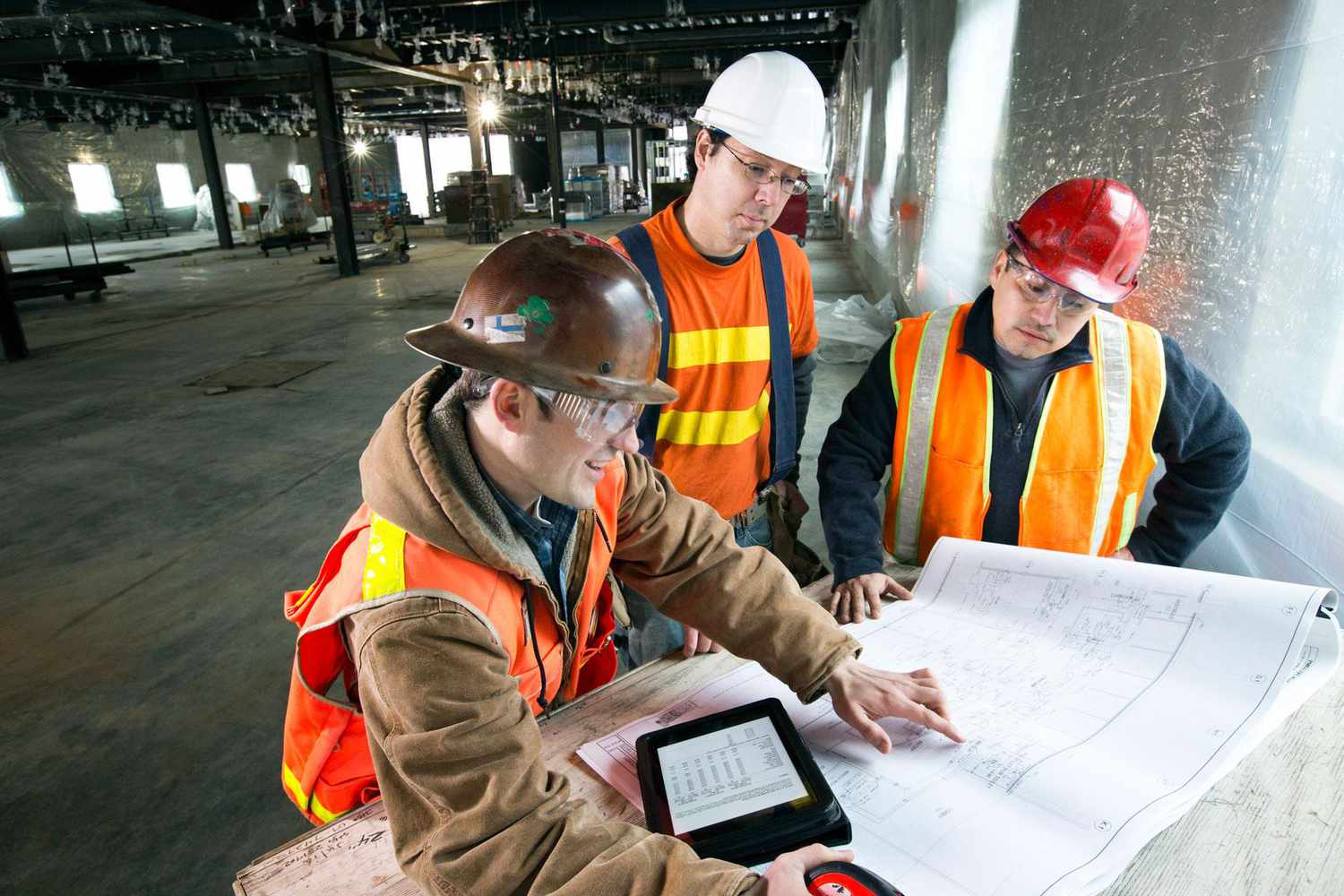

Building & Construction
How To Bid On Commercial Construction Projects
Modified: January 3, 2024
Learn how to bid on commercial construction projects with our comprehensive guide. Find tips and strategies for a successful bidding process in the building construction industry.
(Many of the links in this article redirect to a specific reviewed product. Your purchase of these products through affiliate links helps to generate commission for Storables.com, at no extra cost. Learn more)
Introduction
Welcome to the world of commercial construction projects! In this comprehensive guide, we will explore the ins and outs of bidding on commercial construction projects. Whether you are a seasoned contractor or just starting out in the industry, understanding the bidding process is essential for success.
Commercial construction projects offer exciting opportunities for growth and profitability. From office buildings and shopping centers to hotels and hospitals, the demand for commercial construction is constantly on the rise. However, winning bids in this competitive market requires careful preparation, accurate cost estimation, and the ability to stand out from the competition.
In this article, we will walk you through the step-by-step process of bidding on commercial construction projects. We will cover everything from understanding the market to submitting the bid and evaluating the results. So, let’s dive in and explore the world of commercial construction bidding!
Key Takeaways:
- Thorough preparation, accurate cost estimation, and effective presentation of capabilities are crucial for success in bidding on commercial construction projects. Continuous improvement and customer-centric approach are key to winning bids and building long-term relationships.
- Understanding the market, gathering comprehensive project information, and creating a clear, detailed, and competitive bid are essential steps in the commercial construction bidding process. Evaluating results and adapting bidding strategies based on feedback are crucial for continuous improvement and increased competitiveness.
Read more: How To Bid For Commercial Lawn Care
Understanding the Commercial Construction Market
Before diving into the bidding process, it is crucial to have a solid understanding of the commercial construction market. This knowledge will help you identify the right opportunities, stay informed about industry trends, and position your bids effectively.
The commercial construction market encompasses a wide range of projects, including office buildings, retail spaces, industrial complexes, healthcare facilities, and more. It is driven by factors such as economic growth, population expansion, and urban development. Keeping an eye on these factors can help you identify potential bidding opportunities.
Researching the market and staying up-to-date with current trends are important steps in understanding the market. Look for market reports, industry publications, and online resources that provide insights into the current demand for commercial construction projects in your region. This information will help you identify the sectors experiencing growth, the key players in the market, and the types of projects that are in high demand.
Networking is another valuable tool for understanding the commercial construction market. Attend industry events, join professional associations, and connect with other contractors, architects, and developers. Building relationships with key stakeholders in the industry can provide valuable insight into upcoming projects and market conditions.
Understanding the different stakeholders involved in commercial construction projects is also important. These stakeholders may include project owners, developers, architects, engineers, and subcontractors. Each stakeholder has their own set of priorities and requirements, so having a clear understanding of their needs and expectations will allow you to tailor your bids accordingly.
Additionally, consider the geographic location when analyzing the commercial construction market. Different regions have different market dynamics, regulatory requirements, and labor costs. Understanding the local market will help you develop competitive bids that take into account these factors.
By understanding the commercial construction market, you can identify the most promising bidding opportunities and position yourself as a knowledgeable and competitive contractor. This knowledge will serve as the foundation for successful bidding in the commercial construction industry.
Preparing for Bidding
Preparing for bidding is a crucial step that sets the stage for a successful commercial construction project. It involves gathering necessary information, estimating costs, and creating a winning bid strategy. Here are some key steps to consider when preparing for bidding:
1. Research the Project: Start by thoroughly researching the project you are bidding on. Understand the scope of work, project specifications, and any unique requirements. This will help you determine if the project aligns with your capabilities and resources.
2. Assess Your Capabilities: Evaluate your company’s expertise, equipment, and available resources. Determine if you have the necessary skills and capacity to successfully complete the project. Assessing your capabilities will help you identify any potential gaps that need to be addressed before bidding.
3. Determine Your Pricing Strategy: Developing a pricing strategy is crucial for a successful bid. Consider factors such as labor costs, material costs, equipment expenses, and profit margins. It’s important to strike a balance between competitiveness and profitability.
4. Establish Relationships with Subcontractors: Building a network of reliable subcontractors can give you a competitive edge when bidding on commercial construction projects. Establish relationships with subcontractors who specialize in different trades. This will allow you to leverage their expertise and provide competitive pricing for different aspects of the project.
5. Develop a Bid Schedule: Creating a bid schedule helps you stay organized and meet deadlines. Determine the duration of each phase of the bidding process, including gathering project information, estimating costs, and finalizing the bid. Setting a realistic schedule ensures that you have enough time to thoroughly prepare your bid.
6. Review Project Contracts and Documents: Carefully review all project contracts, documentation, and any legal requirements. Familiarize yourself with the terms and conditions, project milestones, and any specific deadlines. This will help you understand the project’s contractual obligations and avoid any potential disputes down the line.
7. Stay Up-to-Date with Regulations: Commercial construction projects must comply with various regulations and codes. Stay updated with local, state, and federal regulations related to construction safety, environmental standards, and permits. Understanding and complying with these regulations will ensure that your bid is accurate and in line with the project’s requirements.
By properly preparing for bidding, you can lay a strong foundation for a successful commercial construction project. Thorough research, assessing capabilities, developing a pricing strategy, establishing subcontractor relationships, creating a bid schedule, and staying updated with regulations will position you for a competitive and well-prepared bid.
Gathering Project Information
Gathering project information is a critical step in the bidding process that allows you to make informed decisions and create accurate cost estimates. Obtaining comprehensive project information will help you understand the scope of work, identify potential challenges, and develop a competitive bid. Here are some key areas to focus on when gathering project information:
1. Project Specifications: Carefully review the project specifications provided by the client or project owner. These specifications outline the requirements, materials, and standards for the project. Pay attention to details such as architectural drawings, engineering designs, and any specific building codes that need to be followed.
2. Scope of Work: Understand the scope of work for the project. This includes the tasks, activities, and deliverables that need to be completed. Identify the major components of the project, such as structural elements, electrical systems, plumbing, HVAC, and finishing work.
3. Site Conditions: Visit the project site to assess the existing conditions. Take note of any potential challenges, such as difficult access, limited space, or environmental factors. Understanding the site conditions will help you better plan for the construction process and accurately estimate costs.
4. Project Schedule: Determine the project timeline and any critical milestones. Understand the client’s desired completion date and any specific deadlines that need to be met. This will help you develop a realistic timeline for your construction activities and align your bid accordingly.
5. Subcontractor Requirements: Identify any subcontractor requirements for the project. Determine if there are specific trades or specialties that you will need to subcontract. This information will help you ensure that you have the necessary support from reliable subcontractors when preparing your bid.
6. Material and Equipment Specifications: Familiarize yourself with the required materials and equipment for the project. Understand if there are any particular brands, specifications, or quality standards that need to be met. This knowledge will assist you in determining accurate material costs and selecting the appropriate equipment for the project.
7. Project Budget: If possible, obtain information on the project budget from the client or project owner. This will provide you with insights into the financial expectations and limitations. Understanding the budget will help you develop a bid that aligns with the client’s financial requirements.
8. Communication with the Client: Establish open lines of communication with the client or project owner. Seek clarification on any ambiguities or questions regarding the project. Gathering information directly from the client can help ensure that you have a complete understanding of their needs and expectations.
By thoroughly gathering project information, you will be equipped with the necessary knowledge to create an accurate and competitive bid. Understanding the project specifications, scope of work, site conditions, project schedule, subcontractor requirements, material and equipment specifications, project budget, and maintaining communication with the client will set the stage for a well-informed bidding process.
Estimating Costs
Estimating costs is a crucial step in the bidding process, as it allows you to determine the financial requirements of the commercial construction project. Accurate cost estimation ensures that your bid is competitive, profitable, and realistic. Here are some key factors to consider when estimating costs:
1. Materials: Identify the materials required for the project and research their current market prices. Take into account factors such as quantity, quality, and any specific brand or specification requirements. It’s important to source multiple suppliers to ensure competitive pricing and availability.
2. Labor: Calculate labor costs based on the scope of work and the estimated time required to complete each task. Consider the number of workers needed, their wages, overtime pay, and any associated benefits or insurance costs. Don’t forget to account for specialized labor if the project requires it.
3. Equipment: Determine the equipment needed for the project and evaluate the associated costs. This may include renting or purchasing construction machinery, tools, and vehicles. Consider factors such as equipment depreciation, maintenance, fuel, and insurance.
4. Subcontractors: If certain aspects of the project require subcontractors, obtain quotes from them to estimate the costs of their services. Ensure that their quotes include all necessary labor, materials, and equipment. Factor in any fees for project management or coordination with subcontractors.
5. Overhead Expenses: Account for overhead expenses, such as administrative costs, office rent, utilities, insurance, and permits. These costs are necessary for the overall operation of your business and should be factored into your bid to ensure profitability.
6. Contingencies: It is important to include contingency funds in your cost estimation to account for unforeseen circumstances or changes in the project. A general rule of thumb is to include a percentage of the total project cost as a contingency buffer, typically ranging from 5% to 10%.
7. Profit Margin: Determine the desired profit margin for your bid. Consider factors such as market competition, the complexity of the project, and your business goals. It’s essential to strike a balance between competitiveness and profitability when setting your profit margin.
8. Adjustments for Market Conditions: Consider any market fluctuations that may impact costs during the project. Fluctuations in material prices, fuel costs, and labor rates can affect your overall project budget. Stay informed about market trends and adjust your cost estimates accordingly.
By carefully estimating costs, you can ensure that your bid is realistic, accurate, and competitive. The accuracy of your cost estimation is crucial for maintaining profitability and delivering the project within the client’s budget. Regularly review and update your cost estimation methods to account for changes in market conditions and industry practices.
When bidding on commercial construction projects, make sure to thoroughly review the project specifications and requirements to ensure that your bid accurately reflects the scope of work and any special considerations.
Read more: How To Bid On Construction Projects
Creating a Winning Bid
Creating a winning bid requires a combination of thorough preparation, accurate cost estimation, and a compelling presentation of your capabilities. Your bid should showcase your expertise, professionalism, and understanding of the project’s requirements. Here are some key elements to consider when creating a winning bid:
1. Clear and Detailed Proposal: Craft a clear and coherent proposal that outlines your understanding of the project, the scope of work, and your proposed approach. Clearly articulate how you will meet the project’s requirements and deliver the desired outcomes. Use concise and professional language to convey your message effectively.
2. Highlight Your Expertise: Emphasize your company’s experience and expertise in similar commercial construction projects. Showcase successful past projects, certifications, qualifications, and any unique capabilities or innovations that set you apart from the competition. This helps build confidence in your ability to deliver high-quality work.
3. Competitive Pricing: Provide a competitive and transparent pricing structure that clearly breaks down the costs. Avoid unnecessarily inflating the prices, as this may deter potential clients. Instead, focus on offering value for money by providing high-quality work at a fair and reasonable price.
4. Value-Added Services: Consider including value-added services in your bid to make it more compelling. This can include warranties, additional inspections, maintenance services, or any other extras that bring added value to the client. Highlighting these services can differentiate your bid from competitors.
5. Timelines and Project Schedule: Present a detailed timeline and project schedule that demonstrates your understanding of the project’s duration and key milestones. This shows your ability to manage the project efficiently and meet the client’s desired completion date. Be realistic and include contingencies for any potential delays.
6. Strong Communication Plan: Outline your communication plan for the project, detailing how you will keep the client informed and updated on the progress. Emphasize your commitment to open and timely communication, which is crucial for maintaining a good working relationship with the client throughout the construction process.
7. Carefully Review the Bid: Ensure that all information in your bid is accurate, consistent, and free from errors. Thoroughly proofread and review the bid to avoid any misunderstandings or misinterpretations. Mistakes and inconsistencies can undermine your professionalism and credibility.
8. Differentiate Yourself: Find ways to stand out from the competition. Consider what unique qualities, approaches, or services you can bring to the project that others may not offer. Differentiating yourself can help make your bid more memorable and increase the chances of being selected.
Remember, creating a winning bid is not just about meeting the project’s requirements; it is about showcasing your company’s capabilities, professionalism, and commitment to delivering exceptional results. Take the time to customize each bid to the specific project and client, tailoring your approach to align with their needs and expectations.
Submitting the Bid
After carefully preparing and creating a winning bid, the next step is to submit it to the client or project owner. It is essential to follow the submission guidelines and ensure that your bid stands out from the competition. Here are some key points to consider when submitting your bid:
1. Review Submission Requirements: Thoroughly review the bidding documents and submission requirements provided by the client. Pay close attention to the deadline, format, and any specific instructions for submitting the bid. Compliance with these requirements is crucial to avoid disqualification.
2. Organize Your Bid Package: Gather all the necessary documents, including your proposal, cost estimates, project timeline, and any supporting materials. Ensure that they are neatly organized and clearly labeled. Use an appropriate packaging or folder to present your bid professionally.
3. Double-Check Your Bid: Before submitting, double-check all the information in your bid package for accuracy and completeness. Verify that all supporting documents are included and that there are no formatting or typographical errors. Any mistakes or omissions could jeopardize your chances of being selected.
4. Submit on Time: Timeliness is crucial when submitting your bid. Plan ahead to ensure that you have sufficient time to compile and review your bid package before the deadline. Consider using a delivery method that provides proof of submission, such as registered mail or a courier service.
5. Follow-Up Communication: Consider sending a polite follow-up communication to confirm that your bid has been received. This can help ensure that there were no issues with the submission process and gives you an opportunity to express your continued interest in the project.
6. Maintain Confidentiality: Respect the confidentiality of the bidding process. Avoid discussing your bid or sharing sensitive information with parties who are not directly involved in the project. Confidentiality helps maintain the integrity of the process and protects the interests of all stakeholders.
7. Be Responsive to Queries: If the client or project owner has any questions or requests for clarification during the evaluation process, respond promptly and professionally. Demonstrating your willingness to engage and address concerns can positively influence their perception of your bid.
8. Keep the Bid Valid: Specify the validity period of your bid in accordance with the client’s requirements. Ensure that you are able to honor your bid during the specified period. If circumstances change that may affect the cost or timeline, communicate these changes to the client promptly.
Submitting a bid requires attention to detail, adherence to guidelines, and professionalism. By carefully following the submission requirements, organizing your bid package effectively, and maintaining confidentiality and responsiveness throughout the process, you increase the chances of your bid being seriously considered and evaluated.
Post-Bid Activities
After submitting your bid, there are several important post-bid activities that can greatly impact the outcome of the bidding process and help you secure the project. These activities involve staying engaged with the client, preparing for negotiations, and continuing to showcase your capabilities. Here are some key post-bid activities to consider:
1. Follow-Up Communication: After submitting your bid, it is important to maintain open lines of communication with the client. Send a polite follow-up email or make a phone call to ensure that your bid has been received and to express your continued interest in the project. This demonstrates your professionalism and commitment.
2. Address Client Inquiries: Be prepared to promptly respond to any inquiries or requests for clarification that the client may have. Thoroughly address their questions and concerns, providing clear and concise responses. This shows your attentiveness and willingness to engage in further discussions.
3. Negotiation Preparation: If the bidding process involves negotiation, take time to prepare thoroughly. Review and analyze your bid, identifying areas where you can be more flexible while still ensuring a reasonable return on investment. Consider alternative solutions or trade-offs that can help you meet the client’s needs while maintaining profitability.
4. Competitor Analysis: Research your competition and analyze their bids. Identify their strengths and weaknesses, pricing strategies, and innovative approaches. This information can help you fine-tune your own bid and highlight your unique value proposition to differentiate yourself from the competition during negotiations.
5. Update Cost Estimates: If there are any changes or updates to the project information or scope, be prepared to adjust your cost estimates accordingly. Stay flexible and proactive in reviewing and revising your bid as needed. This demonstrates your ability to adapt to evolving project requirements.
6. Showcase Your Expertise: Continue to showcase your expertise and capabilities even after submitting your bid. Share relevant case studies, testimonials, and references that support your track record of successful project delivery. This reinforces the client’s confidence in your ability to meet their expectations.
7. Professional Engagement: Maintain a professional demeanor and positive attitude throughout the post-bid process. Be responsive, courteous, and respectful in all interactions with the client and their representatives. Professionalism can leave a lasting impression and help establish a strong working relationship.
8. Analyze Project Alternatives: While awaiting the decision, consider other projects or opportunities that align with your company’s capabilities and growth goals. It is always good to have a backup plan in case the bid is not successful. This ensures that you can stay active and productive even if one particular project does not pan out.
Engaging in post-bid activities allows you to stay connected with the client, respond to inquiries, prepare for negotiations, and demonstrate your professionalism and commitment to delivering exceptional results. These activities can give you a competitive advantage and increase your chances of securing the project.
Evaluating the Results
Once the bidding process is complete and the decision has been made, it is important to evaluate the results to gain insights and inform future bidding strategies. Evaluating the results allows you to understand the strengths and weaknesses of your bid, learn from the experience, and continuously improve your bidding practices. Here are some key steps to follow when evaluating the results:
1. Assess the Outcome: Start by assessing whether your bid was successful or not. If you were awarded the project, evaluate the factors that contributed to your win. If you were not successful, identify the reasons why and learn from the experience. Understanding the outcome is crucial for enhancing your future bidding efforts.
2. Review the Decision-Making Process: Reflect on the decision-making process used by the client or project owner. Consider factors such as the selection criteria, the weighting of different criteria, and any feedback or insights provided. This analysis can help you better understand the client’s priorities and tailor your future bids accordingly.
3. Analyze Competitor’s Bids: Look closely at the bids submitted by your competitors who were awarded the project or were shortlisted. Identify the strengths and weaknesses of their proposals and pricing strategies. This analysis can provide valuable insights into what resonated with the client and help you refine your own bid presentation in the future.
4. Review Cost Estimation Accuracy: Assess the accuracy of your cost estimation in relation to the actual project costs. Identify any significant discrepancies and analyze the reasons behind them. This evaluation can help refine your cost estimation methodologies and improve the accuracy of future bids.
5. Seek Feedback: If possible, reach out to the client or project owner for feedback on your bid. Request their input on why your bid was not selected or what areas could be improved. Constructive feedback can guide you in making necessary adjustments and refining your bidding strategies.
6. Identify Areas of Improvement: Identify specific aspects of your bid that could be improved. This might include proposal clarity, pricing competitiveness, presentation style, or any other areas highlighted during the evaluation process. Make a plan to address these areas and implement improvements in your future bids.
7. Document Lessons Learned: Document the lessons learned from the bidding process, including successes and areas of improvement. This information can serve as a valuable reference for future bidding endeavors. Regularly review and update this document to ensure continuous improvement in your bidding practices.
8. Adapt Bidding Strategies: Based on the evaluation of the results, adapt your bidding strategies as needed. Incorporate the insights gained from the evaluation into your future bids. Continuously refine your approach, presentation, and pricing strategies to increase your chances of success in future projects.
Evaluating the results of your bid is a crucial step in the continuous improvement of your bidding process. By learning from each experience, seeking feedback, and making necessary adjustments, you can enhance your bidding strategies and increase your success rate in securing commercial construction projects.
Read more: How To Bid For Construction Jobs
Conclusion
Bidding on commercial construction projects can be a challenging yet rewarding endeavor. The key to success lies in thorough preparation, accurate cost estimation, and effective presentation of your capabilities. Understanding the market, gathering project information, creating a winning bid, and evaluating the results are all important steps in the bidding process. By following these steps and continuously improving your strategies, you can increase your chances of securing profitable projects and growing your business.
Throughout the bidding process, it is essential to maintain professionalism, open communication, and a customer-centric approach. Listening to the client’s needs, addressing their concerns, and providing value-added services can greatly enhance your chances of winning bids and building long-term relationships.
Remember to stay up-to-date with market trends, regulations, and industry best practices. Continuously refine your cost estimation methods, keeping an eye on market fluctuations and adapting your pricing strategies accordingly. Engage with subcontractors, leverage their expertise, and build strong industry connections to strengthen your bidding capabilities.
As you submit bids and evaluate the results, maintain a growth mindset and view each bidding opportunity as a valuable learning experience. Analyze the outcomes, seek feedback, and document lessons learned to continuously improve your bidding process and increase your competitiveness in the market.
In conclusion, bidding on commercial construction projects requires a combination of industry knowledge, meticulous preparation, and effective communication. By understanding the market, gathering project information, estimating costs accurately, creating winning bids, and evaluating the results, you can position your company for success and secure profitable projects in the dynamic and competitive world of commercial construction.
Frequently Asked Questions about How To Bid On Commercial Construction Projects
Was this page helpful?
At Storables.com, we guarantee accurate and reliable information. Our content, validated by Expert Board Contributors, is crafted following stringent Editorial Policies. We're committed to providing you with well-researched, expert-backed insights for all your informational needs.




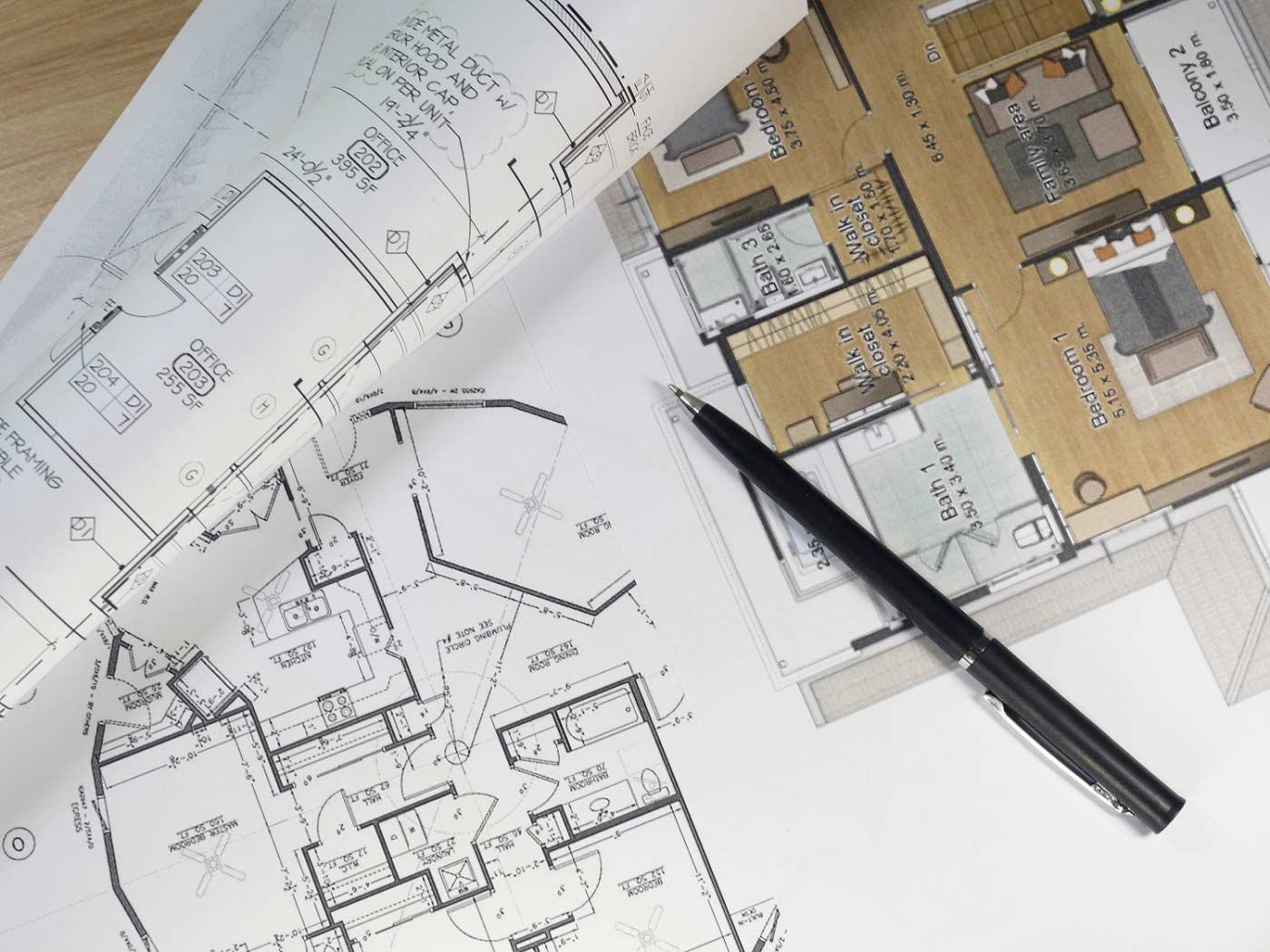



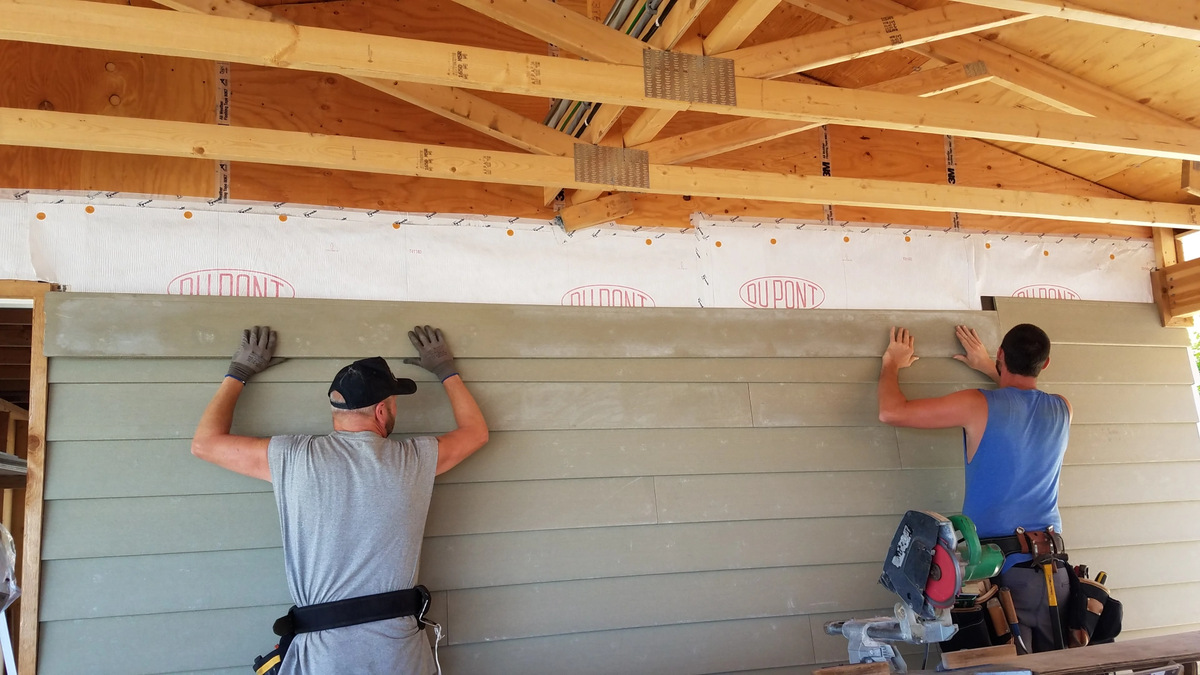
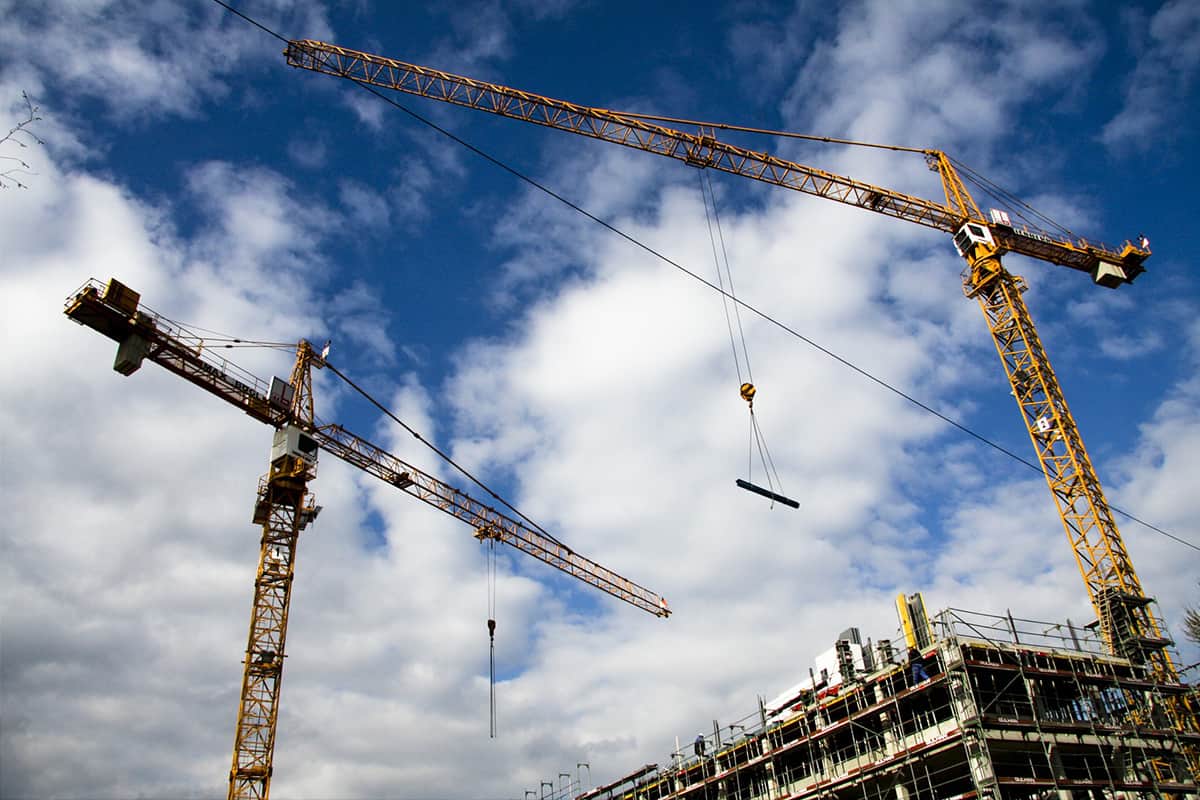

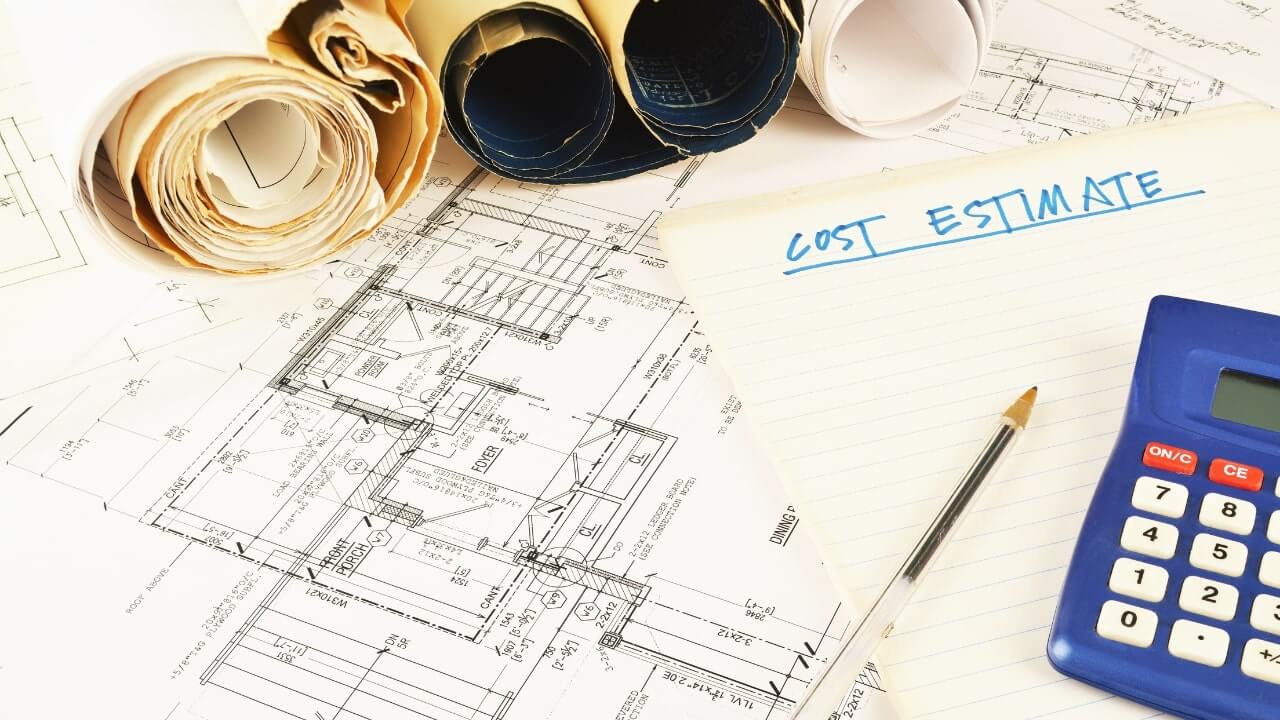


0 thoughts on “How To Bid On Commercial Construction Projects”